"A man ought to read just as inclination leads him, for what he reads as a task will do him little good."—Samuel Johnson
| Reviews | Limericks | Six Words | Buy Nothing |
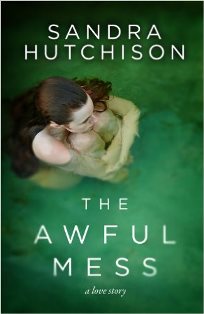 18 December 2015
18 December 2015
The Awful Mess
Sandra Hutchison
This novel is like a Kristan Higgins romance set in the real world. You've got the spunky, newly single heroine moving to a small New England town, her cute fixer-upper house, the handsome town cop eager to marry her, and the sexy older guy eager to get her into bed. But the heroine is a sarcastic atheist, the cop lives with his father, the older guy is not only married but an Episcopal priest, and someone might have died in the bed of the fixer-upper house. Perhaps most refreshing is that the characters worry about money and struggle with earning a living. It gets dark—very dark—and hints at a liberal, spiritual Christianity as redemption, but doesn't rely on religion to light the way out.
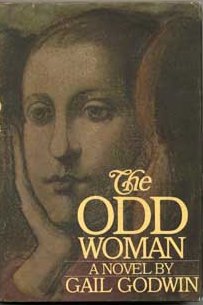
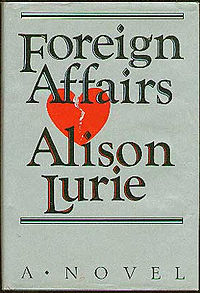 18 December 2015
18 December 2015
The Odd Woman
Gail Godwin and
Foreign Affairs
Alison Lurie
There are a lot of similarities between these two stellar novels about single, middle-aged, American, female English professors contemplating romantic affairs. Both characters are sharp observers of the world around them. Lurie's character is in England for a semester, wryly envisioning herself trailed by an imaginary dog that embodies her self-pity. Godwin's character explores the intricacies of relationships between women on visits to her strange Southern family and an old friend's feminist collective. Both characters chafe at unfairness but question themselves; Lurie's character is undone by her own pride while Godwin's stumbles on self-doubt. Lurie's novel, winner of the 1985 Pulitzer Prize, is funnier on the surface but ultimately sadder. Godwin's, published ten years earlier, is a little bit weirder and less plot-driven; her character's department store rumination on the frustration of the fitting room is alone worth the cover price.
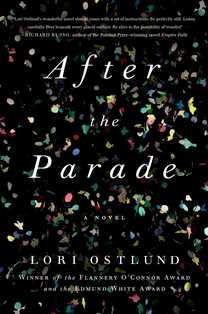 18 December 2015
18 December 2015
After the Parade
Lori Ostlund
Ostlund's first novel is every bit as good as her story collection had led me to hope. An ESL teacher leaves the long-term partner who rescued him from a difficult childhood, and moves to San Francisco. Not much more than that happens, but he does come to make peace with his mother and his past. What makes the book great are Ostlund's somewhat strange but very realistic supporting characters and her observations about people, language, and life.
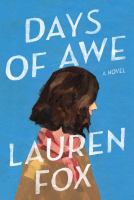 18 December 2015
18 December 2015
Days of Awe
Lauren Fox
Yet another winner from Lauren Fox. Isabel, a middle-school teacher, is dealing with the sudden death of her best friend and the faltering of her marriage. As always with Fox's work, the characters are very real* and not always even that likable. As Isabel says, "It seemed like the most important parts of me were also the worst." You're not always sure where it's going, and it doesn't tie up neatly, but there's enough sweetness (and wordplay! Anita Coffee, anyone?) to make it another pleasurable read.
Also by Lauren Fox: Friends Like Us and Still Life With Husband
*Isabel's mother is the exception. The parent who survived the Holocaust and burdens their child with their gloom, paranoia, and overprotection has entered cliché territory in fiction. What's more, it would be unusual for a thirtysomething today to have a parent who was around during the Second World War. It's another example of what I think of as cultural lag. The people making art are often 20 years older than the young people they're making art about, so their references are all wrong. It happens a lot in movies and television, even on Girls, which is headed by someone in their twenties. For example, Hannah's fiftysomething parents go to a Judy Collins concert, Marnie wears an Izod shirt and a headband at a college party in about 2005, or Adam shows Hannah a home movie of himself as a child on Super 8 film. Adam was born in the late 1980s. It would be very strange for him to have Super 8 film of himself when video was widely available. Sure, Super 8 looks fuzzy and distant, like the past, and is shorthand for childhood memories, but for anyone under 40 that's only because it's what they see representing childhood on television and in movies. It's an artist's job to look at what's really there, not to use shortcuts, and careful readers and viewers will notice when timelines don't make sense.
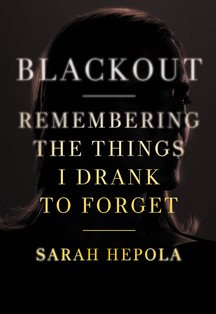 18 December 2015
18 December 2015
Blackout: Remembering the Things I Drank to Forget
Sarah Hepola
Tales of drunken excesses can quickly grow tiresome, but Hepola has a fresh voice that makes her memoir worth reading. Throughout her years as a binge drinker she was able to maintain a successful writing career, and she was usually the life of the party, but she doesn't remember much of it, and many things she does remember, or can figure out, make her burn with shame. She's got a lot to say about the experience, but also about much more (her observation that just as pornography hurts women by giving men unrealistic ideas, romantic comedies hurt men by shaping women's expectations is right on). I'm glad she's emerged from her blackout and I look forward to reading more from her.
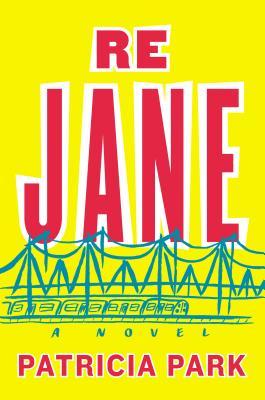 25 June 2015
25 June 2015
Re Jane
Patricia Park
Jane Re's post-college job offer disappeared when the dot-com bubble burst, so now she's back working in her uncle's grocery store in Flushing. Out of desperation she answers an ad for a nanny in Brooklyn, and becomes involved with a pair of academics (sharply satirized without being stereotyped) and their Chinese-born daughter. Getting to know a family so different from her own, worrying about her future, and feeling like she never fit into the Korean community or family she was raised in (she never knew her Korean mother or Caucasian father) make for a multi-layered story told in a straightforward and perceptive voice, peppered with Korean words and ideas. It's also a retelling of Jane Eyre, but this excellent first novel stands up perfectly well on its own.
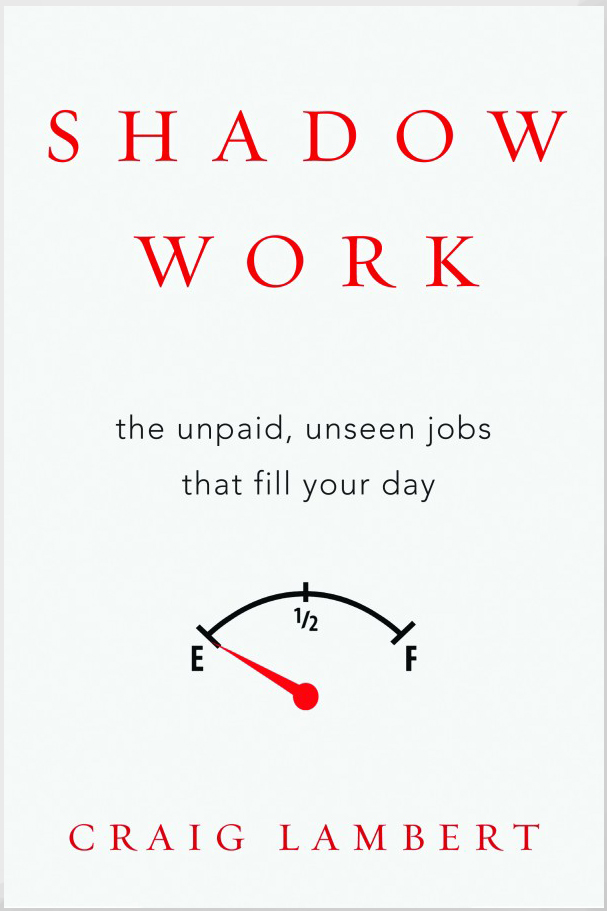 25 June 2015
25 June 2015
Shadow Work: The Unpaid, Unseen Jobs That Fill Your Day
Craig Lambert
Shadow work is all the tasks that used to be performed by professionals (like travel agents) and are now performed by the consumers themselves. Lambert says he isn't really making a case for or against Shadow Work, just identifying it. But sometimes it sounds like he's complaining about having to bus his own table or return his shopping cart rather than leave it sitting in the lot. Why shouldn't we clean up after ourselves? The problem is, a lot of people don't, or won't. Theoretically, the money saved by not having to employ someone to pump your gas for you (while you aren't doing anything but sitting and watching them anyway) should be passed on to you, though we know it doesn't always work that way. A more disturbing variation of shadow work will be familiar to anyone who has filled out the same forms over and over at the doctor's office, or spent spent hours on the phone trying to get an insurance claim paid, wondering where their premiums are going if they still have to do all the work themselves. Add that to the long list of problems with the U.S. health care system. Lambert also laments how shadow work displaces human interaction. When you use self-checkout, for instance, you don't get to ask your cashier about her career plans (the assumption being that the people paid to serve us must also entertain us with details about their personal lives). Your cashier may not miss these interactions as much as you do. And Lambert wonders, as so many others have, why all our devices meant to provide us with more leisure time have actually meant we end up with less. It's because we use those devices to spend our time scrambling to stay connected and on top of information, most of which will evaporate by the next morning.
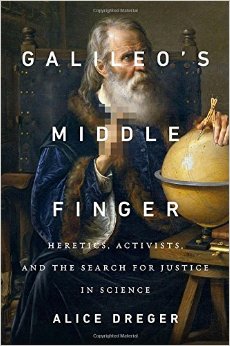 5 May 2015
5 May 2015
Galileo's Middle Finger: Heretics, Activists, and the Search for Justice in Science
Alice Dreger
Dreger is an academic historian and a longtime advocate for intersex people. Highly aware of the long history of mistreatment of intersex, gay, female, and many other people in the name of science, her inclination had been to be sympathetic to pursuing social justice with an instinctive skepticism toward scientific findings that seemed to hinder that pursuit. But when she began to learn more about the relationship between activism and science, she found gross distortions of the truth on the part of those claiming to be scholars working for civil rights. She looks beyond the intersex movement to controversies over sociobiology and anthropology, describing how when two researchers dared to suggest that rape is a crime not only of power but of sex (a more nuanced understanding that could not only help protect women but prosecute rapists) they faced a storm of anger and death threats. There's a little too much blow-by-blow description of nasty tactics on the part of some transgender activists, but Dreger is a direct and often funny writer. Describing how, upon learning about how the standard practice upon the birth of an intersex child was to perform immediate genital surgery, often resulting in lifetime sexual dysfunction and health problems, she imagined she would point out the wrongness of this to the medical community "and...the doctors would say 'Oh, gosh, yes, we've been meaning to fix this. Thanks!' And it would all change." As a firm advocate for human rights, she asserts that the rigorous quest for truth is the only way to achieve them. "We scholars had to put the search for evidence before everything else, even when the evidence pointed to facts we did not want to see." It's an inspiring call for recognition that science and activism are not only not opposed, but can't exist without each other.
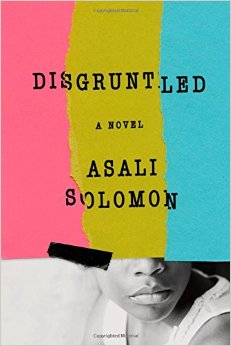 15 April 2015
15 April 2015
Disgruntled
Asali Solomon
Eight-year-old Kenya Curtis is the only black kid in her class who celebrates Kwanzaa. Her mother supports the family as a librarian while her father works on his manifesto of black liberation and runs a consciousness-raising group. Like most kids, Kenya is doing her best to make sense of her world and her parents. When she has to leave her urban Philadelphia neighborhood for a private, mostly white, girls' school, she's got even more to figure out. Kenya is sharply perceptive and drily funny but basically alone in a confusing and dangerous world, and the reader is completely pulling for her. Wholly engaging and tantalizingly unpredictable (and full of 1980s pop culture references), this is a fantastic first novel and I can't wait for Solomon's next one.
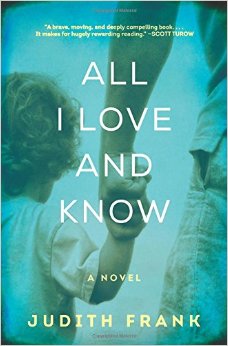 14 April 2015
14 April 2015
All I Love and Know
Judith Frank
Joel and Ilana are killed in a café suicide bombing in Jerusalem. They had willed custody of their two young children to Joel's twin brother, Daniel, in Northampton, Massachusetts, but Ilana's parents want to keep the children in Israel and, despite the will, Israeli courts may be sympathetic. Daniel's partner, Matt, a creative, witty complement to Daniel's more sober personality, is enthusiastic about taking in the children, but can their relationship withstand the pressure and scrutiny? Daniel and Matt are both strongly opposed to Israel's treatment of the Palestinians, but Daniel, on top of his grief for the loss of Joel, feels pulled in several directions, between loyalty to Israel and Joel, discomfort with Joel's uncritical support of Israel, the needs of two parentless children, and the desires of their grieving grandparents, who are survivors of the Holocaust. Every character is complex and real, down to six-year-old Gal, struggling to adjust to the destruction of her young world. Well constructed, beautifully written, incisive and fair, this novel is at times sad and difficult to read but very much worth it.
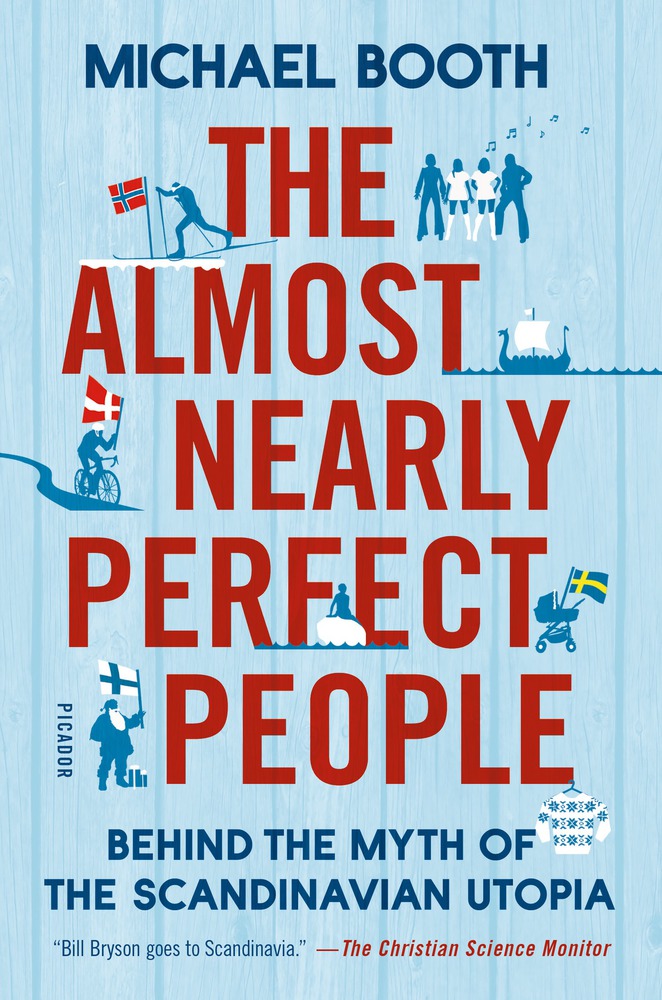 18 March 2015
18 March 2015
The Almost Nearly Perfect People: Behind the Myth of the Scandinavian Utopia
Michael Booth
The subtitle hints at dark secrets in the land of the midnight sun, but overall British journalist Booth is a big fan of the Nordic people. Lumping Finland and Iceland in with the three Scandinavian nations, he visits each of the countries several times and seems to have made a lot of friends in each (his wife is Danish and he's lived in Denmark for many years). He asks hard questions: Is Norway a big hypocrite, with its giant carbon footprint from its oil wealth? How is Sweden treating its large immigrant population? Does a solid safety net discourage innovation? Is stifling conformity and obligatory self-effacement a fair price to pay for a society with the best education system in the world and no real poverty? (Booth basically says it is). And can the welfare state even be sustained indefinitely? There's lots to learn here, but Booth mostly has a great time poking fond fun at people not known for their sense of humor. The most fascinating part is his illumination of the differences between the cultures in each country—they are relative, of course, but very real. When he first encountered the Danes, he says, they just seemed like "Germans with better furniture," but by the end of our tour, the Finns and Swedes have made the Danes, in comparison, look like "Las Vegas cabaret hosts."
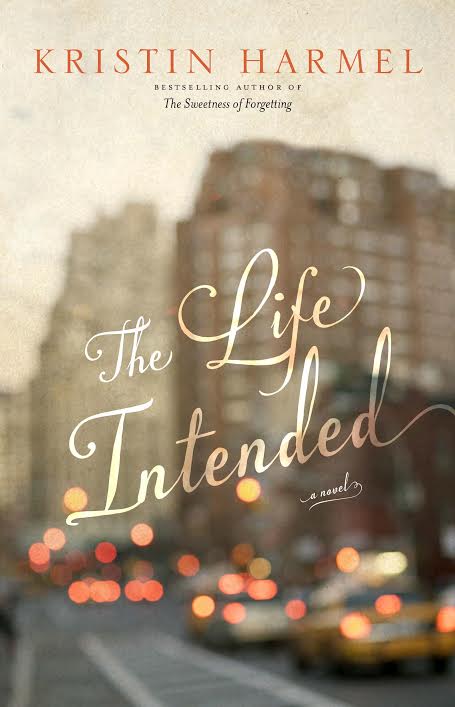 18 March 2015
18 March 2015
The Life Intended
Kristin Harmel
Kate's perfect husband was killed suddenly in a car crash four months after they were married. Twelve years later, having worked her way into a satisfying career as a music therapist, she finds out she can't get pregnant. It turns out her fiancé doesn't really want children anyway, which doesn't help her already lukewarm feelings for him. She starts having vivid dreams where she finds herself in a world where her first husband didn't die and they now have a deaf 12-year-old daughter. The dreams inspire her to learn ASL and begin working with deaf children, and the worlds begin to blur when she learns things in her dream that turn out to be true. The premise aside, even the characters aren't very believable (especially the perfect first husband), but it's so warmly and genuinely written that the reader is easily drawn in.
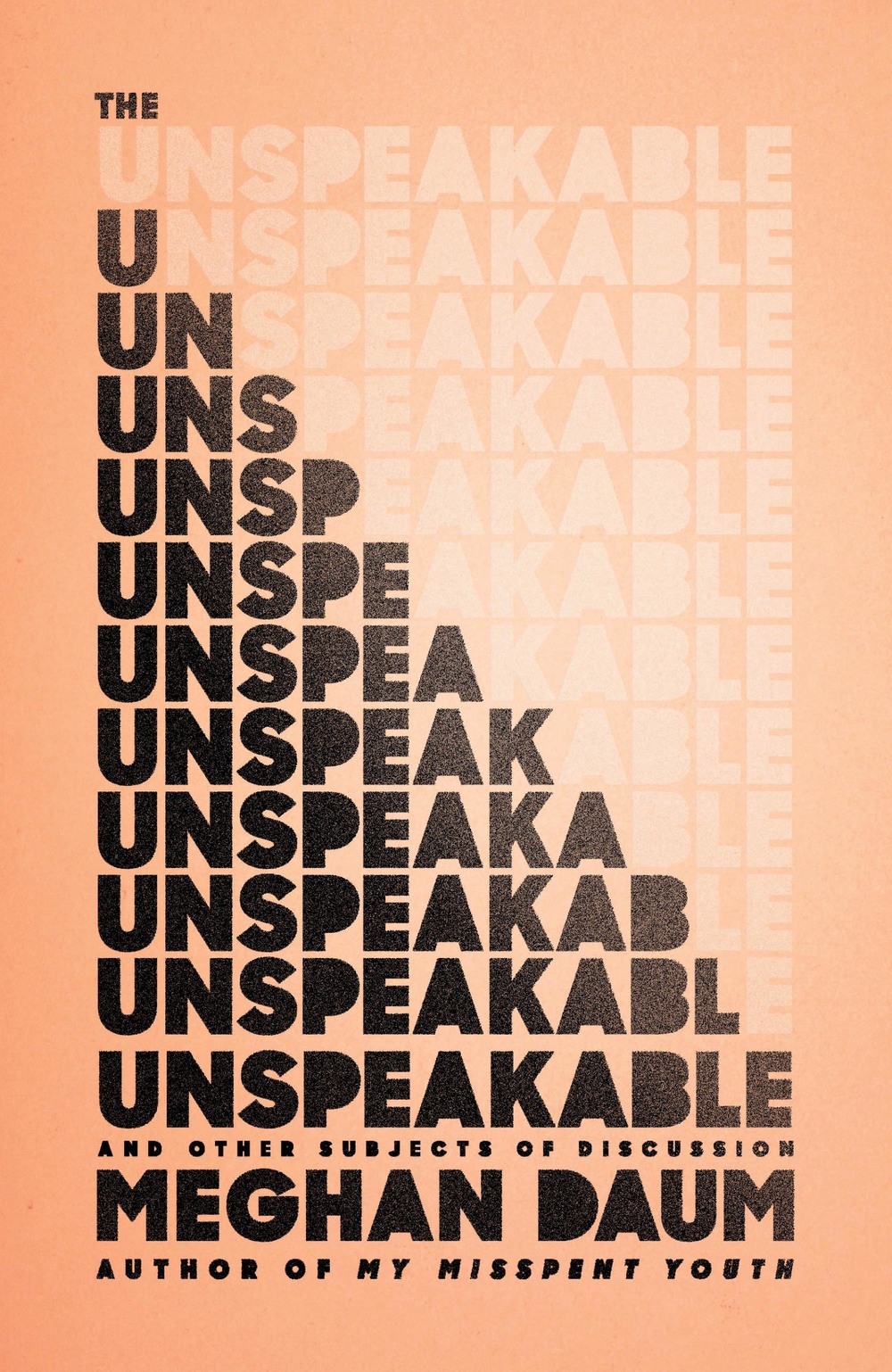 4 February 2015
4 February 2015
The Unspeakable: And Other Subjects of Discussion
Meghan Daum
The best essays in this collection, in which she describes her dislike of her dying mother (who was in turn contemptuous of her own mother), or her acceptance that she doesn't want to have children even though she's married to a man who does, will get you through the lighter ones ("I eat neither particularly well nor particularly badly. Most days I consume...."). Daum is a cool and clear writer, refreshing in her belief that her recent near-death experience didn't provide her with some magical insight or religious conversion. She's quick to make fun of herself, and can be very funny about it, and yet she can be a little obtuse, as when she strongly implies that she is the only person who can properly appreciate Joni Mitchell; or when she talks about being an honorary dyke, somehow missing that an honorary title isn't usually something one bestows upon oneself. She plays at being contrarian and even shocking ("unspeakable" is a tall order), but proclaims the merits of staying in one's comfort zone (itself a comfortably contrarian opinion), and overall it seems that's where she writes from, keeping the reader at a slight remove. Even so, if you have any interest in dogs, athletic wear, or the question of why women are marrying later than ever, then her comfort zone is a good place to be.
More essays by Daum: My Misspent Youth
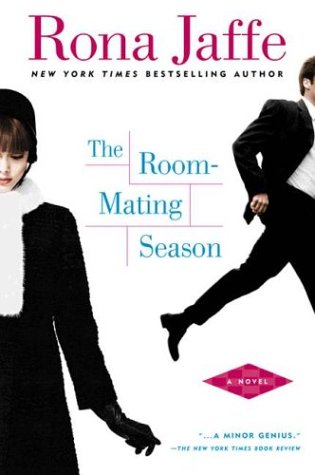 4 February 2015
4 February 2015
The Room-Mating Season
Rona Jaffe
Say you just finished Jaffe's debut novel, The Best of Everything, about young women in the New York City publishing world of the 1950s, and, as with any good novel, you wanted it to go on and on. You watched the movie (and were delighted to find that it was not only entertaining but was in fact a movie that you had stumbled across on late-night TV back in the 1980s and had spent the intervening decades intermittently wondering about and trying to identify). You don't want to read the book over again, of course. Fortunately, you can read The Room-Mating Season, which follows the lives of a group of women a decade or so younger than The Best of Everything's. Jaffe is more likely to explain to the reader what her characters are experiencing rather than let them show you, but she's got a lot of ground to cover between 1963 and 2003 and she's masterful at setting her scenes with period details and teasing out the strongest and most ambivalent emotions that women feel. What in lesser hands would be just another cliché, here feels like the truth.
"There was so much to read, for one thing, and so much fine health to be pulled down out of the young breathgiving air...I was rather literary in college—one year I wrote a series of very solemn and obvious editorials for the Yale News—and now I was going to bring back all such things into my life and become again that most limited of all specialists, the 'well-rounded man.' This isn't just an epigram—life is much more successfully looked at from a single window, after all."—F. Scott Fitzgerald, The Great Gatsby
Copyright © 1996–2026 So Much to Read
Contact: books at so much to read dot com